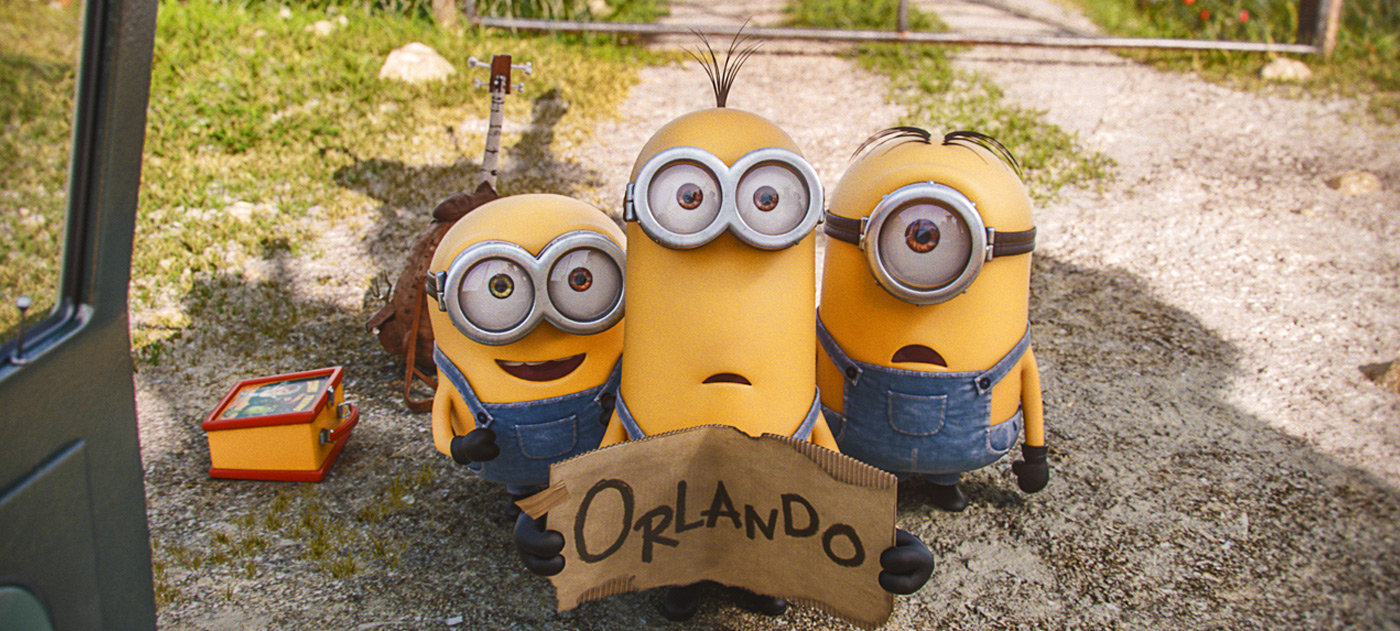A paper town is a fictitious location printed on a map on purpose in order to identify potential copyright infringement. In the film Paper Towns, adapted from the novel by John Green (The Fault in Our Stars), Margo Roth Spiegelman (Cara Delevingne) turns this concept into a metaphor, explaining to Quentin (Nat Wolff, The Fault in Our Stars) how she longs to leave their Orlando suburb, which she views as a paper town, a “fake” town filled with “fake” consumerist people who go about their meaningless lives with no concept of the larger world beyond themselves. This is a pleasingly deep theme to explore, particularly for a film aimed squarely at teenagers, but don’t get your hopes up that Paper Towns will reveal itself to be a Catcher in the Rye for the millennial set, because phoniness is not what this film is actually about — even with the metaphor right there in the title. To be fair, though, I’m not sure what this film is about.
The most frustrating (and ironic) thing about Margo is that she is by far the fakest thing about Paper Towns. She is not a real person; she’s just Quentin’s concept of one. Quentin and Margo, you see, grew up living next door to each other, and he’s been in love with her since the first moment he laid eyes on her. Though they have not been friends since they were young children, he has grown up completely awed by her (to the point that he often refers to her using all three of her names). Quentin is drawn to her precisely because she is everything he is not — Margo is too adventurous and spontaneous and restless, while he is written and performed as having very little personality. When he reveals his goal to Margo of being a doctor with a wife and two kids by the time he turns 30, Wolff makes it sound like the most oppressively mundane life imaginable. One night, Margo enters through his bedroom window and conscripts him into her all-night excursion to get mild revenge on the boyfriend and group of friends who have betrayed her, which leads to her aforementioned diatribe against their meaningless suburban lives.
This night is an absolute life-changer to Quentin, but the next day Margo vanishes, presumed to have run away from home as she’d done several times previously, stranding him with his burgeoning thirst for adventure. Unwilling to believe that he’ll never see her again, Quentin becomes convinced that Margo has left clues for him all over town and wants him to go find her. So, off he goes on a road trip with his best friends Ben (Austin Abrams) and Radar (Justice Smith), Radar’s girlfriend Angela (Jaz Sinclair), and Margo’s best friend Lacey (Halston Sage), certain that they’ll find Margo in a paper town in rural New York state that they notice on an old map.
And this is where Paper Towns gets thematically murky. For all the emphasis placed on Margo’s metaphor, the film never returns to that idea. Instead, the bulk of the film focuses on the road trip and the camaraderie Quentin shares with his two buds. Once the kids are out on the road, director Jake Schreier (Robot & Frank) gets a nice momentum going that never lets up. These parts of the film are nearly straight comedy and revolve around the high school experience. Graduation is approaching (there’s an urgency to the road trip because the characters are constantly reminding each other that they must get back to Orlando in time for prom), and the boys are facing uncertainty about the future of their friendship, what with college forcing them to go their separate ways; an unmistakable melancholy is woven through all of the boys’ scenes, and that creates a poignancy that is unexpectedly affecting. I suppose a connection can be drawn between the paper town metaphor and the end of high school — where teens must leave their safe, structured, “fake” lives behind and venture into the real world — but the film never quite gets there on its own.
What’s more, as much fun as the road trip scenes are, they’re in service of the Quentin-and-Margo story, and it’s difficult to root for a love story in which the protagonist himself describes the girl he loves as a “mystery”, one who turns out to be not so much a human being as she is barely more than a Manic Pixie Dream Girl who exists solely to drag the leading man out of Plato’s cave. Ultimately, that Margo is more concept than character turns out to be the whole point, but by then it’s far too late to care about their relationship. As John Green romances go, Quentin and Margo are no Augustus and Hazel Grace.
My most frequent complaints about weaker films tend to be that 1) the narrative is predictable and formulaic and 2) the supporting characters are underdeveloped. Well, neither of these problems is present in Paper Towns, I’m happy to report. The story here is totally engrossing, delightful, and full of surprises. And all four of the supporting characters are deliciously defined, with specific character traits and distinct personalities. This comes as no surprise, as we already knew that screenwriters Scott Neustadter and Michael H. Weber ((500) Days of Summer, The Spectacular Now) were great with characters, but it’s still a treat. Of all the principal characters, only Angela, perhaps, is slightly undercooked, but Sinclair is so natural and vibrant that one almost doesn’t notice. The mostly unknown supporting cast, in fact, is uniformly excellent. Smith finds so much humour in his nervous, deadpan portrayal of Radar, and he’s able to draw a laugh with his reactions alone. Sage brings intelligence and sweetness to Lacey, the hot popular blonde, who is given so much more depth and nuance than this type of character would normally get in a film like this. But it’s Austin Abrams who is the revelation here. As Ben, the tiny über-dork who tries too hard to be a dudebro, Abrams just does everything right. Too adorable to be lame, too funny to be irritating, too bumbling to be suave, Abrams enthusiastically locates the sweetness and vulnerability beneath Ben’s macho posturing — and he absolutely slays all of his line readings. Remember this kid’s name, folks. He’s going to be a star.
In the lead role, Wolff is handsome and appealing and somewhat bland (his voice-over narration is particularly lifeless), but always enormously likable. Delevingne, meanwhile, remains as much of a mystery as Margo Roth Spiegelman herself. The former (current?) fashion model is striking and full of personality in her first major film role, but the jury’s out on her acting chops — I think we’ll need to see her play a genuine human being before we can know for sure what she has to offer. However, between the facial expressions she makes, the shape of her mouth, and the way her voice wraps around an American accent, she certainly has the right look and presence to star in films that can’t afford Emma Stone.
I haven’t read Green’s novel, so I don’t know if the narrative problems in Paper Towns are the result of flaws in the screenplay or in the source material. All I know is that the core of the film is a disjointed mess. The filmmakers try to achieve thematic depth and gravitas, but never quite succeed as well as they’d hoped. They’re basically the cinematic equivalent of an inexperienced essay-writer in college who somehow manages to write a whole essay from beginning to end without ever defining a thesis statement — there are some interesting ideas sprinkled throughout, a glimmer of potential, but it ultimately accomplishes little because not even the student knows what he/she is trying to say. There are two or three separate films happening here, and each one is the start of something great. But nothing is ultimately joining them together into a cohesive whole. Still, millions of teens will love it, and why shouldn’t they? As flawed as it is, there’s an awful lot here to like.










Fantastic Four
Fantastic Four